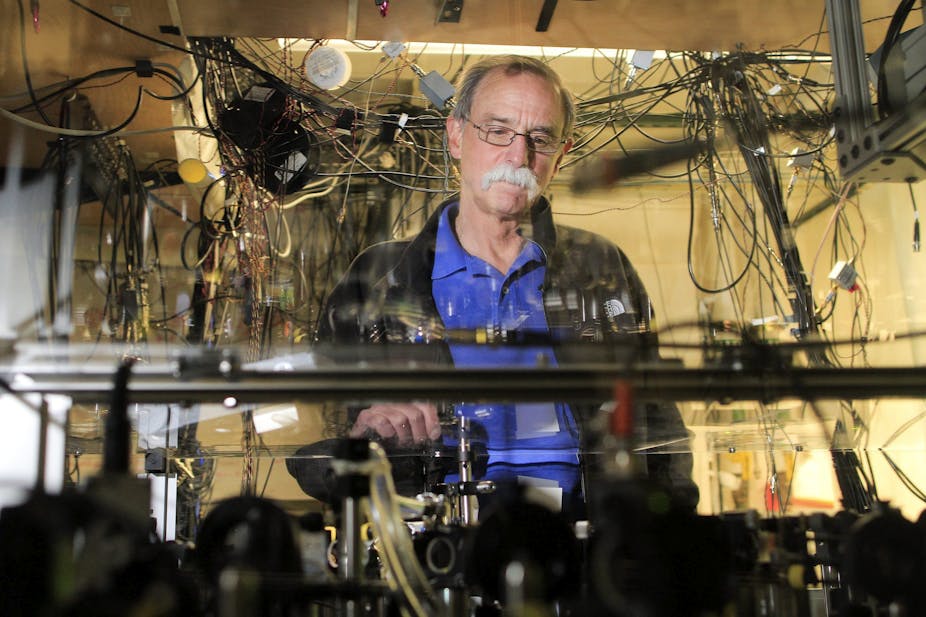Frenchman Serge Haroche and American David Wineland have been awarded the Nobel Prize in Physics in what researchers in the field say is long overdue recognition.
Through their ingenious laboratory methods, Professors Haroche and Wineland managed to measure and control very fragile quantum states, which were previously thought inaccessible for direct observation, The Royal Swedish Academy of Sciences said in making the award.
Their work enabled the first steps towards the quantum computer, and the development of extremely accurate atomic clocks.
“A pretty large fraction of the best atomic physicists in the world have passed through (David Wineland’s) lab or worked for him at one time or another,” said Dave Kielpinski, chief investigator at Griffith University’s Centre for Quantum Dynamics.
“For the past 40 years he’s really had a tremendous influence on the development in the field,” Dr Kielpinski said.
“The community has considered the prize to be overdue for some years, given the extraordinary impact of his work” said Dr Michael Biercuk, senior lecturer in the School of Physics at the University of Sydney.
“What both parties have done is produce a set of capabilities that allows a broad community of scientists to probe true quantum systems for real in the laboratory.”
Many had expected Dr Wineland to be awarded the Nobel prize in 1997 for his work pioneering the use of lasers to cool ions to near absolute zero, the coldest known temperature in the universe.
Dr Kielpinski, who completed his PhD under the tuition of Dr Wineland, said he was “a fantastic guide and mentor, incredibly patient, incredibly knowledgeable”.
“Every so often he has these brilliant ideas that everybody else thinks is crazy, and it turns out it just works.”
Dr Kielpinski said the work he conducted under the supervision of Dr Wineland and Professor Christopher Monroe helped develop a forward plan for how to build large quantum computers, which is now being followed out worldwide.
Dr Biercuk, who also worked with Dr Wineland as a postdoctoral researcher, said Dr Wineland’s career has been so broad and so impactful, he could have received a few Nobel prizes.
“There aren’t a lot of people about whom you could say that.”

